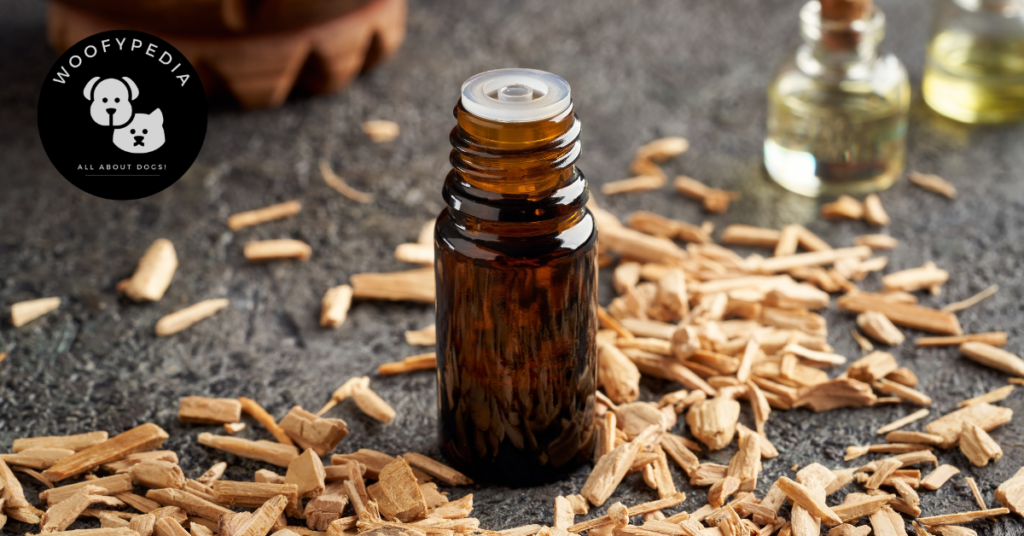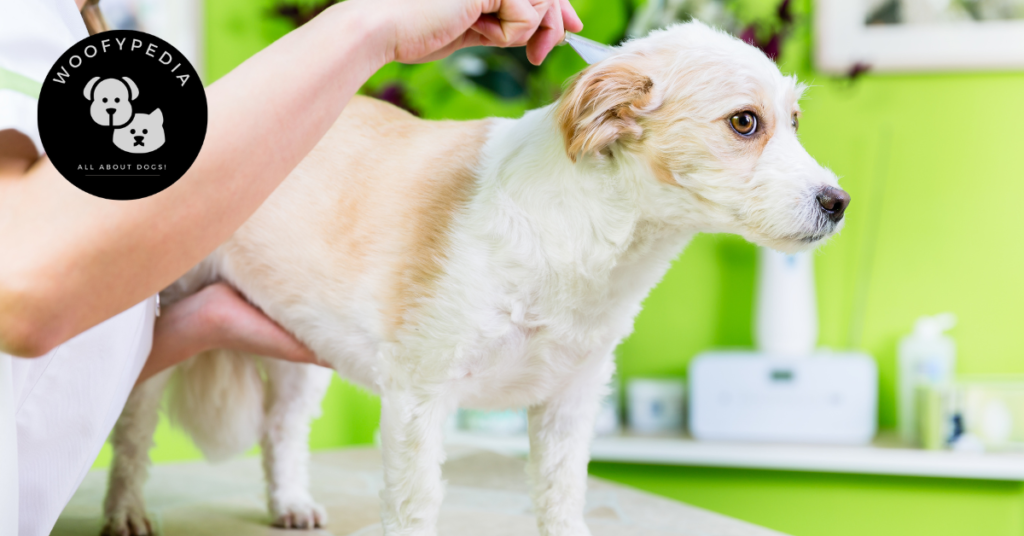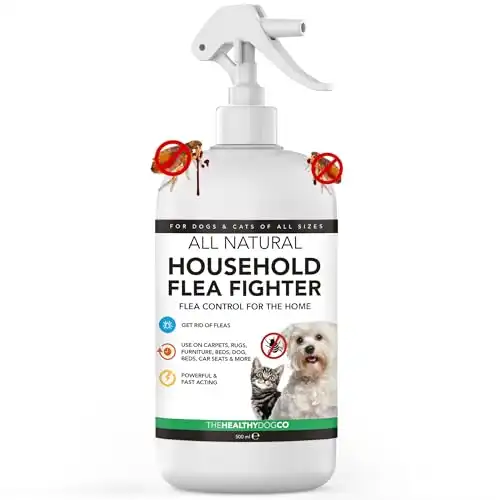Natural Flea Treatment for Dogs: 9 Flea Killers!
Natural Flea Treatment for Dogs: A Safer Path to Pest-Free Living
Table of Contents
- Natural Flea Treatment for Dogs: A Safer Path to Pest-Free Living
- 1. Introduction
- 2. What Are Fleas and Why Are They a Problem?
- 3. Benefits of Natural Flea Treatments
- 4. Top Natural Flea Treatments for Dogs
- 5. How to Treat Fleas on Dogs Naturally
- 6. Prevention: Keeping Fleas Away Naturally
- 7. Natural Flea Remedies for Puppies and Cats
- 8. DIY Natural Flea Treatments
- FAQs on Natural Flea Treatments for Dogs
- Conclusion

1. Introduction
Why Flea Prevention Matters
These tiny pests are more than just an itchy annoyance—they can cause skin irritations, allergic reactions, and even more serious health issues like anaemia if left untreated. Fleas are also highly contagious, spreading quickly to other pets in the home and embedding themselves in carpets, furniture, and bedding.
While chemical treatments are a common solution, many dog owners are turning to natural flea treatment for dogs to protect their pets in a safer, more holistic way. Natural remedies are often gentler on your dog’s skin and immune system.
A Natural Approach to Flea Treatment
Thankfully, there are a variety of effective, natural flea remedies for dogs in the UK that provide an alternative to chemical-based treatments. These solutions range from herbal sprays and shampoos to dietary supplements and essential oils. Natural flea treatments are not only safer for your dog but are often pet-friendly for cats as well, making them ideal for multi-pet households.
In this guide, we’ll explore the benefits of natural flea and tick prevention for dogs, explain why fleas are such a problem, and provide actionable tips for tackling fleas without harsh chemicals.
2. What Are Fleas and Why Are They a Problem?
Understanding Fleas and Their Life Cycle
Fleas are tiny, wingless parasites that survive by feeding on the blood of their hosts—your pets. Their life cycle has four stages: egg, larva, pupa, and adult. Adult fleas lay eggs on your dog’s fur, and these eggs often fall into the environment, such as carpets, bedding, and outdoor spaces. The eggs hatch into larvae, which develop into pupae before emerging as adult fleas ready to repeat the cycle.
This rapid reproduction means a single flea can lead to a full-blown infestation in just a matter of weeks. Because they thrive in warm and humid conditions, fleas can be a year-round problem in many homes, especially in the UK, where fluctuating indoor and outdoor climates create the perfect breeding ground.
Why Fleas Are More Than Just an Annoyance
Fleas aren’t just a nuisance—they can have serious health implications for your dog:
- Itching and Skin Irritation: Flea bites cause intense itching, which can lead to excessive scratching, hair loss, and open sores that may become infected.
- Flea Allergy Dermatitis (FAD): Some dogs develop an allergic reaction to flea saliva, resulting in severe skin inflammation and discomfort.
- Anaemia: In severe infestations, fleas can drain so much blood that young puppies or smaller dogs can develop anaemia, leading to lethargy, weakness, and even life-threatening conditions.
- Disease Transmission: Fleas are carriers of diseases such as tapeworms and bacterial infections like Bartonella (cat scratch fever), which can affect both pets and humans.
Natural Solutions to the Problem
Conventional flea treatments are effective but often come with risks like chemical sensitivities and potential toxicity. That’s where natural solutions come in. Many dog owners are now asking, “What home remedy will kill fleas on my dog?” and turning to holistic options such as:
- Herbal sprays and powders that repel fleas naturally.
- Apple cider vinegar solutions for flea prevention.
- Essential oils like lavender or cedarwood (used safely and diluted).
- Diatomaceous earth to kill fleas in carpets and bedding.
- Dietary supplements like brewer’s yeast to make your dog less attractive to fleas.

3. Benefits of Natural Flea Treatments
When it comes to protecting your pets from fleas, opting for natural solutions offers numerous advantages over chemical alternatives.
Why Natural Treatments Are Better Than Chemical Alternatives
- Gentle on Pets, Especially Puppies
Natural flea treatments are free from harsh chemicals and synthetic ingredients, making them much gentler on your pet’s skin and overall health. This is especially important for puppies. Natural flea remedies for puppies use herbal and plant-based ingredients that provide effective pest control without irritating their delicate skin. - Safe for Multi-Pet Households
If you have a household with both dogs and cats, natural flea treatments are a fantastic option. Chemical treatments for dogs often contain ingredients that are toxic to cats, but herbal flea treatments for cats and dogs are typically safe for both species. - Environmentally Friendly
Unlike chemical flea treatments that can release toxins into the environment, natural solutions are eco-friendly. Ingredients like essential oils and diatomaceous earth are biodegradable and non-toxic. - Promotes Overall Health
Natural flea treatments often come with additional health benefits. For example, dietary supplements like brewer’s yeast not only repel fleas but also support a shiny coat and healthy skin. Similarly, essential oils can have calming effects, reducing anxiety in pets while deterring pests.
(Amazon links are affiliate links which help to support the site.)
4. Top Natural Flea Treatments for Dogs
For dog owners seeking effective alternatives to chemical treatments, there are several natural flea treatments for dogs that are both proven and popular. These options leverage the power of nature to repel and eliminate fleas while being safe and gentle for your pet.
1. Essential Oils
Essential oils like lavender, cedarwood, and lemongrass are well-known for their flea-repelling properties. These oils can be diluted and applied to your dog’s collar or added to homemade sprays for an effective natural flea repellent for dogs.
- Lavender Oil: Repels fleas and soothes irritated skin.
- Cedarwood Oil: Deters fleas and ticks while promoting a pleasant, woodsy scent.
- Lemongrass Oil: Known for its insect-repelling qualities.
Note: Always dilute essential oils before use, as undiluted oils can be harmful to pets.
2. Herbal Sprays and Powders
Herbal flea sprays and powders are pre-made solutions that combine flea-repelling herbs like rosemary, eucalyptus, and neem. These products are easy to apply directly to your dog’s coat or bedding and are safe for regular use. Herbal flea treatment for dogs provides ongoing protection without the need for chemical additives.
3. Flea-Repelling Collars with Natural Ingredients
Natural flea collars infused with essential oils or herbal blends offer a long-lasting natural flea deterrent for dogs. These collars provide ongoing protection by gradually releasing flea-repelling compounds over time.
4. Natural Flea Killers
Products like diatomaceous earth (DE) are incredibly effective at killing fleas in the environment. This natural powder is made from fossilised algae and works by dehydrating fleas and their larvae.
- Sprinkle DE on carpets, pet bedding, or outdoor areas where fleas might hide.
- Ensure you use food-grade DE, which is safe for pets and humans.
5. Homemade Flea Sprays
Creating your own homemade flea spray for dogs is an affordable and effective way to combat fleas. Common recipes include:
- Apple Cider Vinegar Spray: Mix equal parts water and apple cider vinegar with a few drops of essential oil for an easy, natural spray that repels fleas.
- Lemon Infusion Spray: Boil slices of lemon in water, let it cool, and spray it onto your dog’s coat for a citrus-based flea deterrent.
How to Use Natural Flea Treatments Effectively
- Combine multiple methods for comprehensive flea control, such as using a flea-repelling collar alongside herbal sprays and natural powders.
- Be consistent. Natural remedies often require more frequent application than chemical alternatives, so regular use is key.
- Maintain a clean environment. Vacuum frequently, wash pet bedding, and treat outdoor areas to prevent reinfestation.
(Amazon links are affiliate links which help to support the site.)
5. How to Treat Fleas on Dogs Naturally
If your dog has fleas, it’s important to act quickly to provide relief and eliminate the pests. Thankfully, there are effective and natural ways to tackle fleas without resorting to harsh chemicals. Here’s a step-by-step guide to help you treat fleas on dogs naturally and safely.
Step 1: Bathe Your Dog with Flea-Repelling Shampoos
Bathing your dog is one of the best ways to start the flea removal process. Use a natural, flea-repelling shampoo containing ingredients like neem oil, eucalyptus, or oatmeal. These shampoos not only kill fleas on contact but also soothe irritated skin caused by flea bites.
- How to Do It:
- Wet your dog’s coat thoroughly with warm water.
- Apply the shampoo, focusing on areas where fleas tend to hide, such as the neck, tail base, and under the legs.
- Let the shampoo sit for 5–10 minutes before rinsing it off completely.
- Dry your dog with a clean towel.
This process removes adult fleas, dirt, and allergens from your dog’s coat, providing immediate relief. Repeat as necessary but avoid overbathing, which can dry out your dog’s skin.
Step 2: Use a Flea Comb to Physically Remove Fleas
After bathing, use a fine-toothed flea comb to remove remaining fleas, flea dirt, and eggs from your dog’s fur. Flea combs are a simple and effective way to target areas where fleas might linger.
- How to Do It:
- Comb through your dog’s coat in small sections, starting at the head and working your way down the body.
- Focus on areas where fleas are often found, like the belly, tail, and behind the ears.
- Dip the comb in a bowl of soapy water after each pass to kill the fleas you’ve caught.
This method provides an immediate reduction in fleas and allows you to monitor the severity of the infestation.
Step 3: Apply Flea Repellents and Treatments Safely
Natural flea repellents, such as sprays, powders, or essential oils, can be applied after bathing and combing to provide long-lasting protection. These treatments create a barrier that repels fleas and prevents reinfestation.
- How to Apply:
- Sprays: Use a natural flea spray made with diluted essential oils like cedarwood or lavender. Lightly mist your dog’s coat, avoiding the eyes and nose.
- Powders: Sprinkle food-grade diatomaceous earth on your dog’s coat and rub it in gently. This natural flea killer dehydrates and eliminates fleas safely.
- Essential Oils: Dilute a few drops of pet-safe essential oils with water and apply to your dog’s collar or bedding for a continuous flea-repelling effect.
Always follow product instructions and test new treatments on a small area first to ensure your dog doesn’t have a reaction.
(Amazon links are affiliate links which help to support the site.)
6. Prevention: Keeping Fleas Away Naturally
Once you’ve eliminated fleas, it’s crucial to take steps to prevent them from coming back. Prevention is the key to a flea-free dog and home. Here are some tips for natural flea protection for dogs.
Maintain a Clean Home Environment
Fleas can quickly spread and lay eggs in your home, so keeping your environment clean is essential to stopping the flea life cycle.
- Vacuum Regularly: Focus on areas where your dog spends time, like carpets, furniture, and rugs. Empty the vacuum bag or canister immediately after use to prevent fleas from escaping.
- Wash Bedding: Wash your dog’s bedding, blankets, and toys in hot water weekly to kill fleas and eggs.
- Treat Your Home Naturally: Sprinkle food-grade diatomaceous earth or use herbal sprays in areas where fleas might hide, such as baseboards and cracks in flooring.
Groom Your Dog Regularly
Regular grooming is a simple yet effective way to monitor and prevent fleas.
- Use a flea comb during grooming sessions to check for fleas and flea dirt.
- Keep your dog’s coat clean and trimmed, especially in areas where fleas like to hide.
- Inspect your dog after walks or playtime, especially if they’ve been in grassy or wooded areas.
By making grooming a routine, you can catch flea problems early before they become infestations.
Use Preventive Treatments Like Herbal Sprays and Collars
Natural flea repellents and collars are excellent tools for ongoing prevention.
- Herbal Sprays: Apply natural flea sprays made with essential oils to your dog’s coat before outdoor activities.
- Flea Collars: Use collars infused with natural ingredients like cedarwood or citronella for continuous flea protection.
- Homemade Remedies: Create a homemade flea spray with apple cider vinegar or lemon water to mist your dog’s coat weekly.
These treatments provide a safe and chemical-free way to keep fleas at bay, making them perfect for long-term natural flea prevention for dogs.
Stay Vigilant
Flea prevention is an ongoing process. Pay attention to seasonal changes, as flea activity often increases in warmer months. Regular inspections, combined with natural remedies, ensure that your dog remains pest-free all year round.
(Amazon links are affiliate links which help to support the site.)
7. Natural Flea Remedies for Puppies and Cats
When it comes to protecting puppies and cats from fleas, their sensitive skin and smaller bodies require extra care. Chemical treatments can often be too harsh, making natural remedies a safer and gentler option. Here are some effective natural flea remedies for puppies and cats to keep them pest-free and comfortable.
Safe Natural Flea Treatments for Puppies
Puppies are particularly vulnerable to fleas due to their immature immune systems and delicate skin. Here are some ways to tackle fleas naturally:
- Gentle Flea Shampoos
Natural flea shampoos formulated for puppies are a great starting point. Look for shampoos containing soothing, plant-based ingredients like aloe vera, chamomile, or neem oil. These shampoos kill fleas on contact without irritating your puppy’s sensitive skin.- How to Use: Bathe your puppy in warm water, apply the shampoo, and massage gently, focusing on flea-prone areas like the neck and tail base. Rinse thoroughly and dry with a soft towel.
- Boosting Immunity with Natural Remedies
A strong immune system helps puppies resist fleas naturally. Incorporate natural supplements like brewer’s yeast, which repels fleas when added to your puppy’s diet. Omega-3-rich fish oil can also promote healthy skin, making it harder for fleas to latch on.- Pro Tip: Always consult your vet before introducing new supplements to your puppy’s diet.
- Safe Physical Removal
Use a fine-toothed flea comb to gently remove fleas from your puppy’s coat. Dip the comb in soapy water between strokes to kill any fleas you catch.
Safe Natural Flea Treatments for Cats
Cats are particularly sensitive to many substances, so it’s essential to use treatments specifically designed for feline use. Here are a few safe options for natural flea treatment for cats:
- Herbs and Herbal Sprays
Certain herbs like rosemary, catnip, and fennel are natural flea repellents that are safe for cats. You can use these herbs in sprays or place them around your cat’s bedding to ward off fleas.- Herbal Spray Recipe: Mix rosemary tea with water and a small amount of apple cider vinegar. Spray lightly on your cat’s fur, avoiding the face.
- Flea Comb and Natural Oils
Combine regular grooming with a diluted natural oil like coconut oil to repel fleas. Coconut oil not only repels pests but also nourishes your cat’s skin and coat. - Holistic Flea Collars
Use flea collars infused with natural ingredients like cedarwood or citronella. These provide continuous protection without exposing your cat to harsh chemicals.
By using herbal flea treatments for cats, you can effectively repel fleas while ensuring your feline friend remains safe and comfortable. Always choose products specifically labelled as safe for cats, as their systems are more sensitive than dogs’.
(Amazon links are affiliate links which help to support the site.)
8. DIY Natural Flea Treatments
Making your own flea treatments at home is an affordable and eco-friendly way to protect your pets. Here are some easy recipes for homemade flea sprays and herbal flea repellents to keep fleas at bay.
Recipes for Homemade Flea Sprays
- Apple Cider Vinegar Flea Spray
Apple cider vinegar is a natural flea deterrent that’s safe for pets.- Ingredients:
- 1 cup of water
- 1 cup of apple cider vinegar
- A few drops of lavender or cedarwood essential oil (optional, for dogs only)
- Instructions: Mix the ingredients in a spray bottle. Lightly mist your pet’s coat, avoiding the face and eyes. Reapply weekly or after your dog gets wet.
- Ingredients:
- Lemon and Rosemary Flea Spray
Citrus and rosemary are natural flea repellents that smell great too!- Ingredients:
- 1 sliced lemon
- 2 sprigs of fresh rosemary
- 1 quart of water
- Instructions: Boil the lemon and rosemary in water. Let it cool, strain, and pour into a spray bottle. Apply to your pet’s coat as needed.
- Ingredients:
Tips for Creating Herbal Flea Repellents
- Diatomaceous Earth (DE)
Food-grade DE is a natural flea killer that dehydrates fleas in the environment.- How to Use: Sprinkle DE on carpets, pet bedding, and around baseboards. Leave it for a few hours before vacuuming. Avoid applying directly to your pet’s coat to prevent respiratory irritation.
- Herbal Flea Powder
Make your own flea-repelling powder using safe, natural ingredients.- Ingredients:
- 1 cup of food-grade diatomaceous earth
- 1/2 cup of arrowroot powder
- 10 drops of lavender essential oil
- Instructions: Mix the ingredients and apply lightly to your pet’s bedding or sprinkle it around the house.
- Ingredients:
- Homemade Herbal Collar
Infuse a fabric collar with essential oils for long-lasting protection.- How to Make It: Soak the collar in a mixture of water and a few drops of cedarwood or citronella oil. Let it dry completely before placing it on your pet.
Using DIY Natural Flea Treatments Safely
- Always test sprays and powders on a small area of your pet’s coat before full application to check for sensitivity.
- Avoid using essential oils directly on cats, as they are highly sensitive to many oils. For cats, stick to water-based herbal sprays and gentle grooming methods.
- Reapply treatments regularly for ongoing protection, as natural remedies may need more frequent use than chemical alternatives.

FAQs on Natural Flea Treatments for Dogs
Natural flea treatments are becoming increasingly popular for their safety and effectiveness, but pet owners often have questions about how to use them properly. Below, we answer some of the most frequently asked questions to help you make the best choices for your pets.
Q1: What home remedy will kill fleas on my dog?
If you’re looking for a quick and natural way to eliminate fleas, there are several effective home remedies:
- Apple Cider Vinegar Bath: Apple cider vinegar is a natural flea deterrent. Mix equal parts apple cider vinegar and warm water, then bathe your dog in the solution. While it won’t kill fleas directly, it makes your dog’s skin less attractive to them.
- Diatomaceous Earth (DE): Food-grade DE is a natural flea killer. Sprinkle it lightly on your dog’s bedding and carpets to dehydrate and kill fleas. Avoid direct application to your dog’s fur, as it can cause dryness and respiratory irritation if inhaled.
Q2: Are natural flea treatments effective for puppies?
Yes, natural flea treatments can be very effective and are often gentler on puppies than chemical options. Here are some safe methods:
- Gentle Flea Baths: Use a natural flea shampoo made with soothing ingredients like oatmeal, chamomile, or aloe vera to kill fleas while protecting your puppy’s delicate skin.
- Coconut Oil: Rubbing a small amount of coconut oil into your puppy’s fur can act as a natural flea repellent while also moisturising their skin.
- Flea Comb: Regularly comb your puppy with a fine-toothed flea comb to physically remove fleas and flea dirt.
Always consult your veterinarian before trying new treatments, especially on puppies under 12 weeks old.
Q3: Can cats and dogs use the same flea treatments?
Not always. Cats and dogs have different tolerances for certain ingredients, and some treatments that are safe for dogs can be toxic to cats.
- Safe Shared Options: Natural remedies like apple cider vinegar, diatomaceous earth, and herbal sprays made specifically for multi-pet households are generally safe for both cats and dogs.
- Avoid Essential Oils for Cats: Many essential oils, such as tea tree and peppermint, are toxic to cats even in small amounts. Always use treatments that are labelled safe for feline use.
When in doubt, choose products specifically designed for your pet’s species.
Q4: How can I prevent fleas in multi-pet households?
Preventing fleas in a multi-pet household requires a holistic approach:
- Regular Grooming: Brush your pets regularly and use a flea comb to check for signs of fleas.
- Clean the Environment: Vacuum frequently, wash bedding in hot water, and treat carpets with natural flea powders like diatomaceous earth.
- Herbal Preventive Treatments: Use natural flea collars, sprays, or powders to keep all your pets protected.
- Outdoor Maintenance: Keep your yard flea-free by mowing the grass regularly and applying natural flea deterrents like nematodes.
Q5: What’s the best natural flea treatment for dogs?
The best natural flea treatment depends on your dog’s needs and preferences. Here are some top-rated options:
- Diatomaceous Earth: Ideal for treating both your dog’s environment and their bedding.
- Apple Cider Vinegar Spray: A cost-effective, easy-to-make natural flea repellent.
- Herbal Flea Collars: Long-lasting protection infused with essential oils like cedarwood and citronella.
- Natural Flea Shampoos: Formulated with plant-based ingredients to kill fleas on contact.
These options provide effective, non-toxic flea control for your furry friend.
Q6: How safe are herbal flea treatments?
Herbal flea treatments are generally very safe when used correctly. They rely on natural ingredients like essential oils, herbs, and plant extracts to repel fleas.
- Benefits: They are chemical-free, non-toxic, and gentle on pets with sensitive skin.
- Precautions: Always use products labelled as safe for pets and follow dosage instructions carefully. Test new products on a small patch of your dog’s skin to check for allergic reactions.
- For Cats: Avoid using essential oils directly on cats, as they are more sensitive than dogs. Stick to sprays and powders formulated specifically for feline use.
When applied correctly, herbal flea treatments offer a safe and effective alternative to chemical products.
Conclusion
Fleas are more than just an annoyance—they can seriously affect your pet’s health and your home’s comfort. Thankfully, natural flea treatments for dogs provide an effective and eco-friendly way to tackle these pests while protecting your furry friends.
By choosing natural flea remedies for dogs in the UK, you’re opting for solutions that are:
- Safe: Gentle on pets, especially puppies and cats, with minimal risk of side effects.
- Effective: Proven methods to repel and eliminate fleas, ticks, and other pests.
- Environmentally Friendly: Non-toxic to the planet and free from harmful chemicals.
Whether you prefer DIY sprays, herbal collars, or holistic shampoos, these options provide peace of mind knowing you’re prioritising your pet’s health and comfort. Combine natural flea treatments with regular grooming and a clean environment to maintain a pest-free home year-round.
Further information / in depth reading :
Read about ” Dog flea medication Pills “ for more information >>
Read about ” Flea and Worm treatments for Dogs “ for more information >>
Return to ” Flea Treatment for Dogs Article ”
Read about ” Natural Flea treatments for Dogs “ for more information >>













